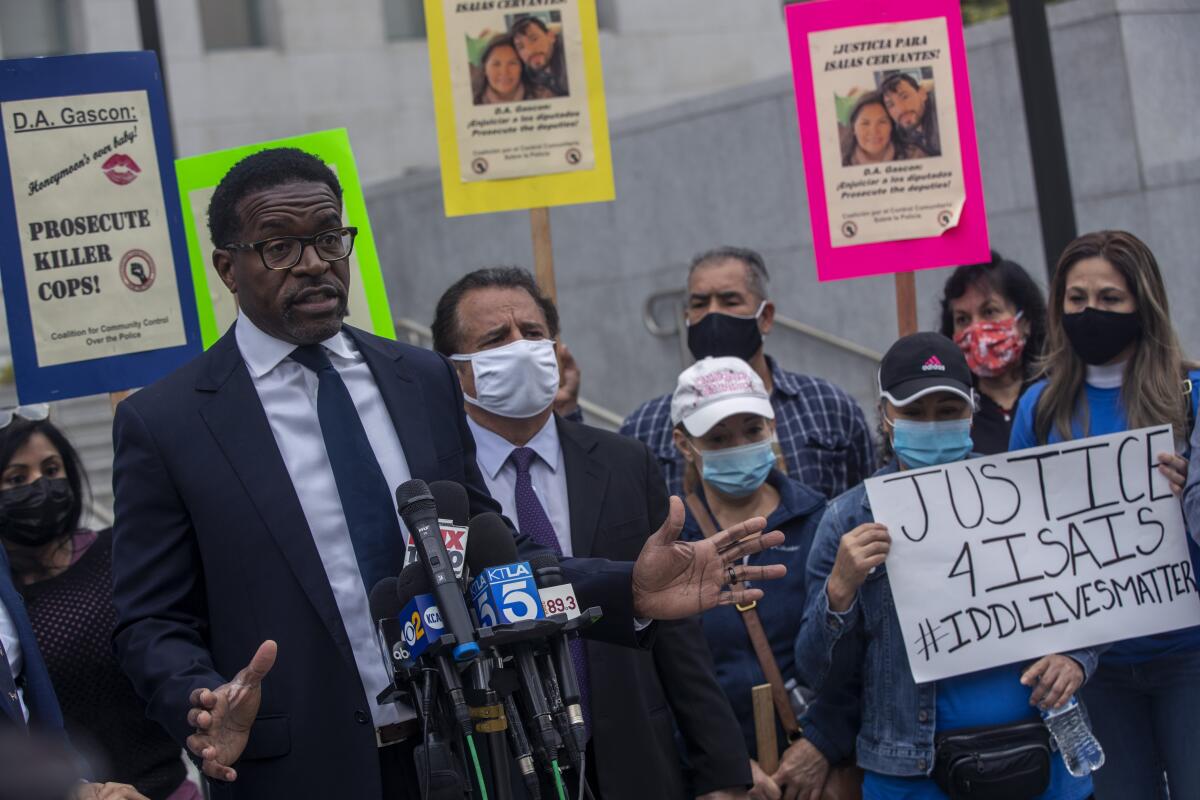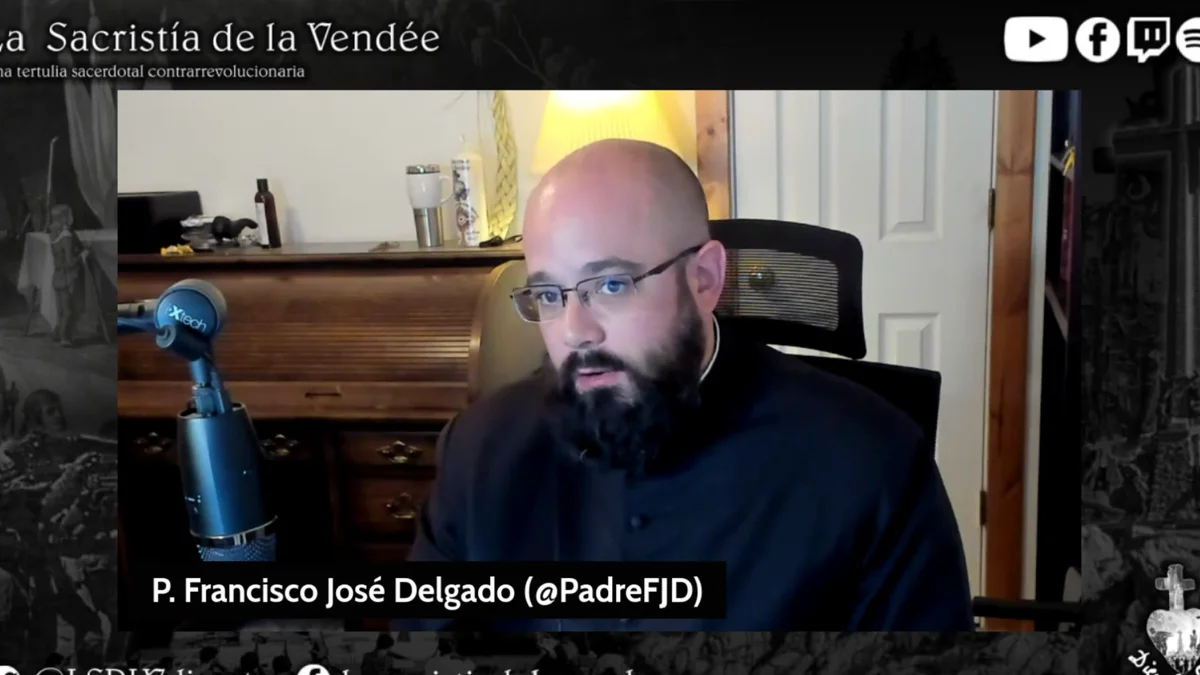Sheriff’s shooting costs taxpayers $25 million. Where’s the accountability?
Editorials
The Times Editorial Board April 8, 2024
Los Angeles County sheriffs officials concluded that two deputies acted within department policy when they confronted and one of them shot Isaias Cervantes, a mentally disabled man in his home in 2021. A corrective action plan (at least, the portion that is public) identified nothing in sheriff’s policies or procedures that needs to be changed to prevent a similar shooting.
So it seems incongruous that county lawyers are suggesting that the Board of Supervisors on Tuesday sign off on an astounding $25 million to settle a lawsuit brought on behalf of Cervantes, who was paralyzed as a result of the March 31, 2021, shooting.
Thats a huge payout, even for Los Angeles County, which spent $257 million on legal settlements and judgments last year. More than half of that amount was attributable to lawsuits against the Sheriffs Department. Liabilities that run that high signal serious problems in county policies and employee conduct. They should be accompanied by meaningful improvements.
But the summary corrective action plan notes no department-wide or systemic changes, and no response beyond reminding personnel of
existing
department protocols.
Department use-of-force investigators and county officials cited problems at several stages of the response, including the failure of desk personnel to ask about the nature of Cervantes mental impairment and the failure to send a Mental Evaluation Team as part of the response.
Once deputies arrived on the scene, though, they were deemed to have done nothing officially wrong. Similar conclusions have been reached in many other cases, in L.A. and around the country, in which families called for assistance with a mentally disabled or disturbed relative, beginning a series of entirely foreseeable events that concluded with law enforcement officers killing or seriously injuring the person they were there ostensibly to help.
The Cervantes case was unusual in that the shooting victim survived. To add insult to serious injury, the Sheriffs Department asked the district attorney to charge Cervantes with assault and resisting arrest although there was no arrest. Prosecutors declined. Nor did they charge the deputies.
The Board of Supervisors generally signs off on lawsuit settlements, even huge ones like the Cervantes case, without comment to the public. That may satisfy the Sheriffs Department and county lawyers, but it leaves taxpayers holding the bag without assurance that the county will try to prevent a recurrence. And it exposes a continuing gulf between citizens who call for service and law enforcement personnel who respond.
For example, Cervantes family, like many overwhelmed by the responsibility of caring for a mentally disabled relative, called for help, not for force. But sheriffs deputies, according to documents presented to the Board of Supervisors, believed they were responding to an assault.
Deputies told Cervantes he was not in any trouble and then attempted to handcuff him in order to safely question him, in accordance with standard law enforcement practices. Yet most people would object to being handcuffed, especially while sitting in their own home, if they are not under arrest. And it should not be unreasonable to expect that a person under stress in such a situation might resist, as Cervantes did, resulting in his being shot.
The settlement will come from money paid to the department by cities that contract for its services. One of those cities is Cudahy, where Cervantes was shot.
Before signing off on the $25 million, the supervisors should ask whether the new 988 crisis line that was not yet available at the time of the Cervantes shooting is preventing recurrences of such tragedies. If not, they should ask whether its because of insufficient public awareness or insufficient availability of alternative county responses. They should ask about the sufficiency of the corrective action plan, and whether the Sheriffs Department continues to send deputies to similar situations without a Mental Evaluation Team. They should ask about handcuffing protocols.
And they should ask whether they can be reasonably certain that nothing like this will happen again. And, if it does, whether county taxpayers might be upset about having to pay the bill again.





